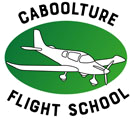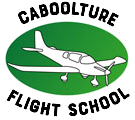Learning to fly
Frequently Asked Questions
Choosing a school
One of the conundrums with learning to fly is that students, when they are first looking to choose a flight school, have very little information on what criteria to base the decision on. Hence the decision is often based on relatively less important factors such as location or price. Obviously these have to be considered but you are only going to learn to fly once – therefore, it makes sense to choose the best school for your needs.
We suggest visiting several possible schools to talk with the instructors, see the aircraft and the facilities, and discuss your requirements and intentions. Form your own impression of the environment and whether it suits you. Do you want a military style of learning with lots of white shirts and gold epaulettes or would you prefer a more relaxed instructional style? Are the aircraft clean? Are the instructors enthusiastic and professional? What theory briefings or pre/post-flight briefings are done? Are these in a classroom or in the aircraft whilst taxiing to the runway? What extra costs are there for briefings, exams, landing fees, or club memberships?
At Caboolture Flight School, we have experienced and friendly instructors who are passionate about recreational flying and current model aircraft which are fully insured – including for student solo use. This means there is no need to have your own aircraft to complete your training, though you can learn in your own aircraft (provided it is safe and has an equivalent insurance cover to ours). We aim to provide the highest possible standard of instruction so come along to see us before making your decision.
Finally, we strongly recommend that you ignore any offers to pay up-front for your training no matter how tempting the discount is. Financially, aviation is a notoriously precarious activity and it is, sadly, far from unheard of for flying schools to go bust taking innocent students’ money with them. Never give a flying school more money than you can afford to lose.
For similar reasons, never let the flying school “look after” your logbook. We see many students who have previous experience but can’t prove it because their records were lost at a long-defunct flying school.
Learning Process
Learning to fly is an intriguing combination of practical (“motor”) skills and theoretical (“cognitive”) knowledge. It follows that your training should include both of these aspects.
The practical skills are obviously practiced in the aircraft but the plane is not an especially good classroom. Most school teachers would refuse to work in such a noisy environment with so many distractions, in such close proximity to the student but still having to communicate through headsets! That’s why, before each flying lesson where we do something new, we have a briefing on the ground. We explain what we are going to do, what will happen, and why. There is no extra charge for these briefings (it is included in the cost of the flight) but it does let you get better value from the time you are paying for in the aircraft.
At Caboolture Flight School, all our flight briefings are delivered electronically and you will be given a printed summary of the content so you can revise between flights. We also use more conventional aids such as a model aircraft and a whiteboard to help explain any new concepts.
Most of the theoretical knowledge you require comes from self-study. There is no need to be daunted by this – it is nowhere near as difficult as you might imagine and your instructors will help as much as they can. Firstly, we recommend that you take advantage of our starter pack which provides all sorts of useful handouts and textbooks to assist with your study. It also includes a pilots logbook – once you start learning, it is a legal requirement to record your flights.
Secondly, the handout for each of our briefings contain some suggested topics to study with sources of information. The briefings also contain a few questions from previous study topics to encourage you to revise and to provide an opportunity for you to ask questions on anything you are struggling with.
Each flying lesson is booked in a 2-hour slot to allow time for approximately 60 mins in the aircraft and for any briefings.
How often to fly
Many of our students try to book at least one lesson per week but don’t worry if this isn’t possible – we will work with you to organise a feasible schedule. Even if you can only manage to fly once every 3 or 4 weeks, it is still possible to learn. Although it is natural to forget more between lessons so more revision is likely to be required. We even have overseas students who can only fly a few times a year and it is still possible to learn.
For students from further afield, it is possible to arrange with us to do more intensive courses. We don’t generally recommend more than 2 flights per day though. Whilst this might not sound like much, if you aren’t tired after that we didn’t push you hard enough! Gaps between flights also allow you to think through the exercises we have been doing and you can practice these “in your mind”. As well as being a great learning technique, this is also free!
Exams
Unfortunately, there is no getting away from the fact that you will have to pass a few exams before you can be issued with your pilot certificate. But don’t despair – these are not designed for you to fail – you just have to demonstrate that you have a certain level of knowledge on certain subjects. For example – Air Law is important because we share the skies with other aircraft so we have to know the “rules of the road” to operate safely. Unlike most motorists, pilots are also expected to have a bit more knowledge about how our vehicles operate.
All of the exams are multiple-choice and conducted “in-house” at Caboolture Flight School and marked immediately. Your instructor will go through any questions you got wrong because it’s important that you understand why your answer was wrong. There is no charge so, even if you didn’t pass, you will know which areas to study before another attempt.
We also offer several ground school classes which can be arranged for students who prefer learning in a classroom environment.
Going solo
Your first solo flight is an occasion you will never forget! The aircraft performs better and there is no nagging from the other seat! You are on your own and entirely responsible for flying the aircraft. We are often asked about how long it takes before a student can fly solo. The answer is that it doesn’t really matter – it happens when you are ready and the conditions are right. It is common to read stories of people who soloed after 5 hours of flight training. This possibly was the case during WWII flying biplanes. If you didn’t solo in that time you probably weren’t the “right stuff” anyway. These days society is a lot more risk-averse – there are a lot of things that “could” (but probably won’t) happen whilst flying solo. We have to be convinced you will be able to handle these scenarios before we can leave you alone in the plane. So don’t stress about how long it takes – it will be worth the wait and, in our experience, the competency of a pilot has little to do with how long it took to qualify.
Flight Test
Obviously you will be a bit apprehensive about going for your flight test but with a few simple guidelines it should be no cause for concern – your instructor won’t recommend you for the test until you are ready (and, at Caboolture Flight School, your instructor will also be the examiner). You won’t be expected to do anything you haven’t already been taught and practiced, but the examiner will want to see that you can do all the syllabus exercises and make good aeronautical decisions. He expects you to be the Pilot in Command so asking questions like which runway to use isn’t going to impress him. You are the pilot – unless he says otherwise, tell him what you intend to do. Remember the old flying adage “Aviate – Navigate – Communicate”.
Read through the syllabus and make sure you are happy with all the exercises before the test. It may be some time since you passed the written exams – the material is not intended to be learnt and then forgotten – the examiner will expect you to remember the important stuff and may well ask questions during the verbal part of the test. If you can’t recall (or just don’t know) the answer, at least be able to tell him which document would use to find it. If you make a bit of a mess of demonstrating a particular exercise – say so (and preferably explain what you did wrong). This is far better than having him wondering if you think the manouvere was to an acceptable standard. Make sure you are moving your head so he knows you are looking out and verbalise your checklist (especially pre-stalls/unusual attitudes).
What age and medical standard
You must be 15 years of age to hold a recreational pilot certificate. The medical standard to fly is the same as to drive a motor vehicle.
Once over the age of 75 years, you must provide a medical statement from a doctor saying you are at the standard to drive a motor vehicle.
How many instructors work at the flight school
Hi, my name is Mark Gentry, and l am the Chief Flight Instructor at Caboolture Flight School. I own the aircraft and the flight school. You have the advantage of one on one training with me.
Everyone learns differently and at a different pace, so l am able to tailor-make your training to suit your needs.
Cost and payment methods
On average, it takes around 27 hours to obtain your recreational pilot certificate.
These amounts could be less (it just depends on the individual) but the figures given should cover the full cost.
I prefer for all my customers to pay as they go. Either bank transfer or cash.
Lessons, the next step
Make a booking for an instructional training flight. I will join you up as a temporary member which costs you nothing. It allows you to have three flights within three months before you are required to join Recreation Aviation Australia.
By then you will have made up your mind to proceed or not. The hours you have flown go forward to your training records.
I supply all the study material and briefings in a starter pack. There are four exams to complete as you go through your training. There are briefings preflight and post-flight.
What are you waiting for? Call and book a flight! l hope I can be a part of making your goal of learning to fly become a reality.
Further Training
At Caboolture Flight School we are proud to be recreational pilots. Learning to fly in Caboolture Flight School and ultralights is about the journey as much as the destination and it should be fun and enjoyable.
Traditional pilot training such as the military or the airlines with their white shirts and gold epaulettes makes the student “fit” a pre-defined learning process. We think that the learning process should fit the student and we would love to help on your journey to becoming a pilot.
“There are some flight instructors where the student is important and there are some flight instructors where the instructor is important. Choose carefully!”
Anon Flying Instructor

